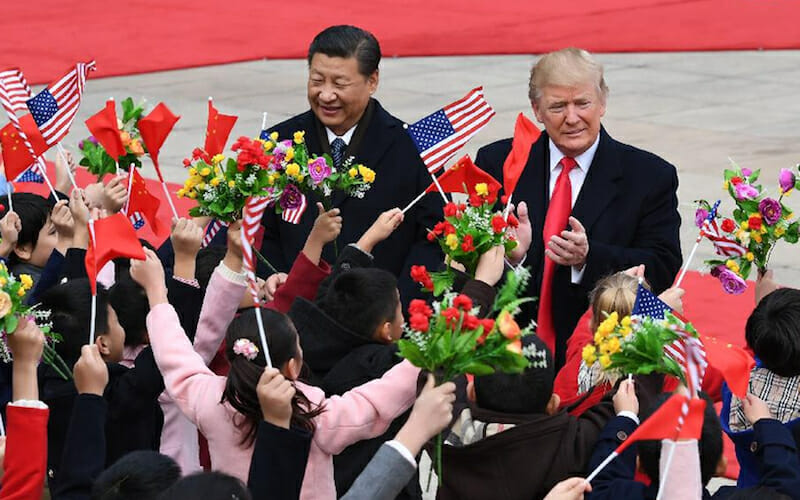
U.S.-Sino Relations in the Trump Era
Following Donald Trump’s unexpected win last November, U.S.-Sino relations were put on hold because the Chinese did not know what to expect from Trump. Another reason was the Trump administration until recently did not have a clear f0reign policy direction. After the election, Trump received an unprecedented call from Tsai Ing-wen, the president of Taiwan. Trump indicated that the U.S. may abandon the “One-China Policy.” This action deepened the suspicions of Chinese leadership.
There was no communication between leaders of the top two biggest economies until Feb of 2017. On February 8, 2017, Trump finally had a call with Xi, promising that he would honor the “One-China policy.” Trump and Xi became closer especially regarding the North Korea problem. In April, Trump first welcomed Xi to Mar-a-Lago. Some analysts believed that the two leaders reached an agreement during this meeting regarding military actions toward North Korea, which ultimately led to Kim Jong-Un abandoning a promised nuclear test during the Kim Sun Festival.
China has placed a priority on U.S.-Sino relations in hopes that the Trump administration would not break the existing framework of these relations, especially regarding Taiwan and the South China Sea. Besides these core issues, presumably the Chinese also hope for an improved economic relationship as well. Some Chinese analysis believe that Trump might be a positive negotiating partner.
China has been reluctant to use formal channels of communication. Back channel diplomacy was employed instead. Before the first phone call between Trump and Xi, Ivanka Trump made an unprecedented visit to the Chinese Embassy. Given that the mitigating call occurred close after Ivanka’s visit, the timing became suspect. Beijing has always preferred secret diplomacy because it provides more strategic space and less of a possibility to “lose face.” Trump’s business background gave Beijing access it had not had before.
In January 2018, The Wall Street Journal published an article, stating that U.S. counterintelligence officials warned Jared Kushner, President Trump’s son-in-law, and senior adviser “that Wendi Deng Murdoch, a prominent Chinese-American businesswoman, could be using her close friendship with Mr. Kushner and his wife, Ivanka Trump, to further the interests of the Chinese government.”
Optimists say that since the election, the relationship has improved as Trump has not pressing China on issues like human rights or the SCS.
Three factors could impact U.S.-Sino relations: North Korea, Taiwan, and the survival of the Trump administration itself. Initially, the Korean Peninsula quandary and the Taiwan issue remain the most critical factors regarding U.S.-Sino relations. As the DPRK’s nuclear-weapons program develops, its threat toward the U.S. increases, and the possibility of military operations increases. In this context, China could respond with a counter-operation, a fake neutralization, or a joint operation with the U.S. against the DPRK.
Regarding the Taiwan issue, if Taiwan publicly declares itself an independent state, the military option becomes the only choice for Beijing, and it would present difficult choices for the U.S. Finally, given the status quo, it is not certain whether President Trump can survive his first term. How will the Democrats respond if they become the majority in Congress next year?
In general, in the timeframe of three years, U.S.-Sino relations are likely to remain competitive. Although the possibility of war over the Korea Peninsula and Taiwan exists, the U.S. government should avoid misjudgments about Chinese intentions regarding the North Korea problem, and instead, use Chinese influence positively.

